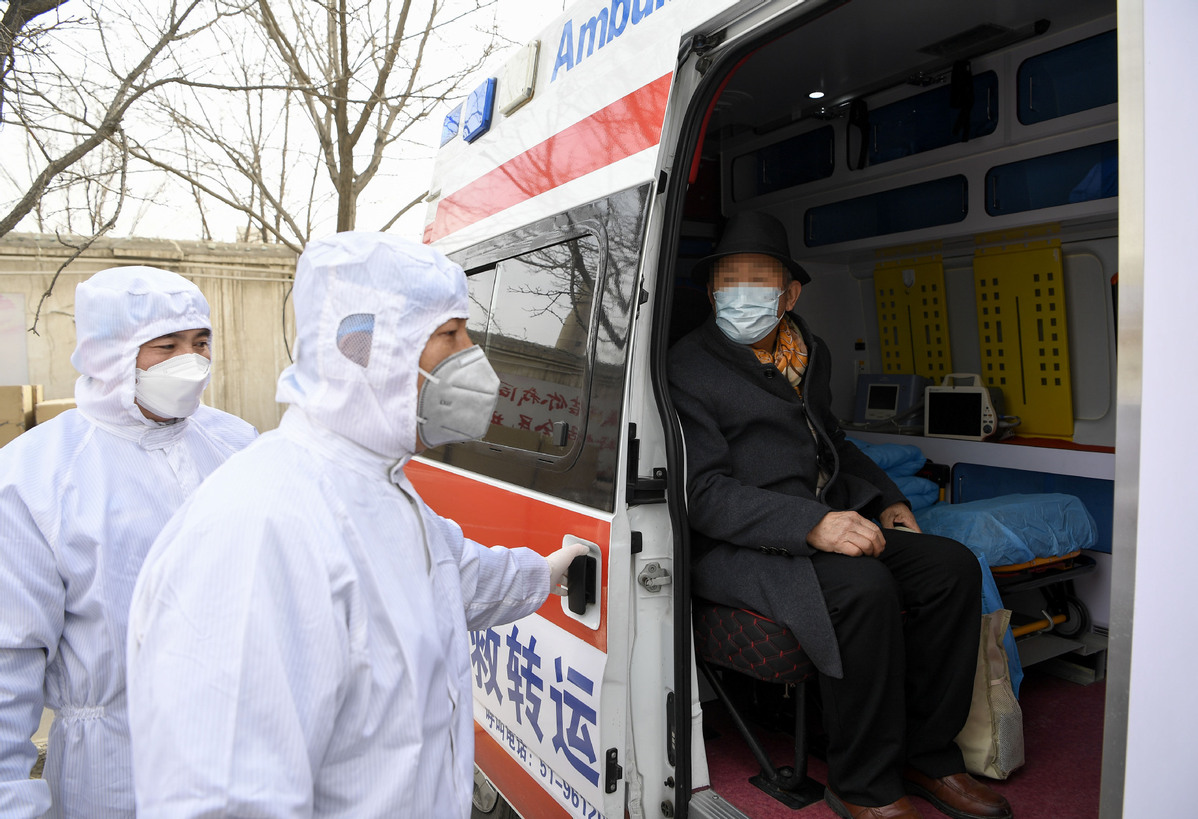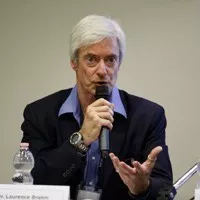Laurence Brahm: How lessons from SARS have taught us how to fight coronavirus
February 22 , 2020
A recovered patient is discharged from hospital in Yinchuan, Ningxia Hui autonomous region, Feb 20, 2020. [Photo/Xinhua]
By Laurence Brahm, a senior international research fellow at CCG
My first thought was that this was SARS all over again. I had lived
through SARS and knew that China’s government leaders had the experience
and its people the resolve and wherewithal to overcome this. My first
impression was that they would be able to control the coronavirus
quickly and end the crisis. However, as the coronavirus spread, I began
to suspect that this was something much bigger, more dangerous and
requiring huge resources to get control over the situation. China’s
challenge was not only to prevent the spread from affecting its own
people. It was a global challenge that only China could meet on behalf
of the world. As control measures kicked in, I began to reflect back on
the years when we were fighting SARS. It was just under two decades ago.
I will never forget, when SARS broke in 2003 I was with Yang Liping in
Kunming for the first dress rehearsal of her Yunnan Impressions music
and dance performance. As film director, I was recording the event. Then
after the dress rehearsal, authorities told us that the rehearsals
would have to be suspended due to SARS and we were all disappointed at
the time, but understood the seriousness of the situation. Yang went
back to Dali and I went back to Beijing to be with my family. We lived
through the whole crisis.
Wang Qishan returned to Beijing to become mayor and I knew this was a good
thing. Each day he gave regular news conferences and reports to the
media with total transparency. Regardless of how serious a crisis, this
kind of transparency and regular communication with the public is very
important to achieve collective cooperation and unity in fighting for a
single and shared cause.
I see this same approach being adopted by the leadership throughout the
coronavirus. And yes, it is working once again. Imagine a country of 1.4
billion people all working in unity to overcome a single challenge.
That cannot be done without government accountability and direct daily
communication with people at all levels from top all the way down to the
lady in the neighborhood committee who comes to your door. It is a
massive combined effort and I believe that China’s ability to respond to
this crisis with such decisiveness derives from the experience with
SARS and other challenges in many different forms over these years of
economic opening-up and social transformation.
In 2002-2003, SARS transformed us all in China. In the old days people
were worried about economics and business. They were rushing to get
ahead and forgot about a lot of other things.
SARS made everybody take a breath. Systems of urban sewage, garbage
collection and controls over restaurants and kitchen cleanliness all
became the new normal. People all began washing hands and toilets began
to be treated as important infrastructure. However, still we were
rushing. Huge infrastructure investment in the hard things that we need
— roads, rails, connectivity — all took precedence over other areas
like environment and healthcare. Hospitals have become overcrowded and
doctors overworked.
These are areas that will need to be reformed and upgraded with the same kind
of infrastructure investment and focus on improvement that the core
infrastructure received earlier. This is a softer infrastructure but one
that is equally important.
The coronavirus brings all of this into new focus and I am certain when the
National People’s Congress meets later this spring it will propose a
lot of healthcare and medical reforms. These areas need attention and I
am sure that they will get it and China will excel in integrating new
technologies like 5G. Regardless of whether the Americans try to stop
5G, I am certain that China will adopt this technology to systems
internally like medical and environment and move faster ahead than
America in these areas in the decade ahead!
Of course China can overcome the economic throwback of the coronavirus
crisis. I can say this with confidence at my age, having lived through
many crisis situations in China and other parts of Asia where I have
worked. Each crisis creates new resolve. The strength of the Chinese
people lies in their culture and the natural resiliency that is part of
that culture.
Taoism is about change. Buddhism is about seeing past-present-future
simultaneously and being able to turn negative situations into positive
by realizing that everything is about how something is perceived.
Confucianism gives Chinese people the organizational capability to
respond to any situation and crisis and the longitudinal and latitudinal
matrix of organization to respond to any situation and crisis. These
are three aspects of the Chinese collective unconscious that are
ever-present in everyone in China always and that is a resilience that
no Western country or people have.
Yes, first quarter growth will be low, maybe 1 percent. Second quarter may
not be much better. But just wait, just wait and watch the growth and
transformation that will occur when this crisis passes and the
government comes in with new fiscal programs for the development of
healthcare and environmental sectors, leading to a new surge of more
jobs and more opportunities.
Remember one thing. Never, ever, ever underestimate the resilience of the
Chinese people and the organizational capability of their government to
meet a challenge face on. I am not saying this as a theory. I have seen
and lived this throughout my own four decades in this country. And I am
seeing it again.

Laurence Brahm, a senior international research fellow at Center for China and
Globalization(CCG) and founding director of the Himalayan Consensus, an
author of Zhu Rongji and the Transformation of Modern China.
Laurence Brahm is also 2019 recipient of the China Friendship Award at the 70th
anniversary celebrations of the PRC. In 2016 he received the Social
Responsibility Award for his contribution to China’s environmental
policy of ecological civilization.
Topical News See more






